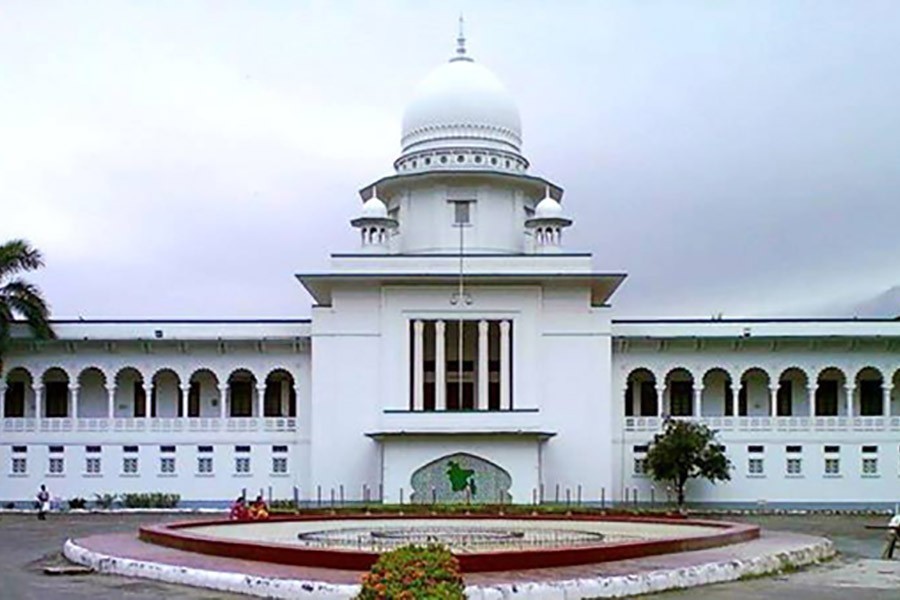The Appellate Division of the Supreme Court has observed that a court cannot pass an order to absorb the employees or officers of a project who have been appointed on contract basis under the revenue budget unless there is any statutory provision.
A three-member bench of the Appellate Division headed by Chief Justice Hasan Foez Siddique passed the observation in a full text of a verdict delivered after hearing some leave to appeal petitions filed with the apex court.
The Appellate Division delivered the verdict on March 6 in 2022, while the full text has been released recently on the website of the Supreme Court.
According to the verdict, Md Kamal Hossain and some others had joined a development project named 'Revitalization of Community Health Care Initiatives in Bangladesh (RCHCIB)' as Community Health Care Provider (CHCP) after being selected through a regular selection process against recruitment advertisements.
"The director of the RCHCIB project sent a letter on February 7 in 2012 along with a proposal to absorb the employees of the project under the revenue budget, but till date no progress has been done."
Later different High Court benches after hearing the rules asked the authorities to regularise or absorb the writ petitioners under the revenue budget with continuity of service and other benefits under the Ministry of Health and Family Welfare in accordance with law provided that they have requisite qualifications subject to availability of the same or equivalent posts as admissible in law as expeditiously as possible.
Feeling aggrieved by the judgments and orders passed by the High Court Division the Government has preferred these civil petitions for leave to appeal before the Appellate Division.
However, during the hearing of the cases, the Attorney General informed the court that the Government in the meantime has enacted 'Community Clinic Health Assistance Trust Act, 2018' for the officers and employees who were appointed in 'Revitalisation of Community Health Care Initiative in Bangladesh' and 'Community Based Health Care' projects.
And by operation of the said law the service of the officers and employees of the RCHCIB project has already been placed under the Trust and as such the writ petitioners are now the officers and employees of the said Trust, added the Attorney General.
After hearing all the parties, the apex court disposed of all the leave petitions with some observations.
In an observation the court said, "The officers and employees of 'Revitalisation of Community Health Care Initiatives in Bangladesh' and 'Community Based Health Care' projects who worked till 30 June, 2015 in these projects are now have become the officers and employees of the Trust, automatically."
The government is directed to consider the case of the writ petitioners in the light of the provisions provided in the 'Community Clinic Health Assistance Trust Act, 2018'.
The court also observed that it is desirable that the regulations of the 'Community Clinic Health Assistance Trust Act, 2018' be framed as early as possible for the better interest of the officers and employees of the Trust, whose service has been placed under the Trust from the above two projects.


